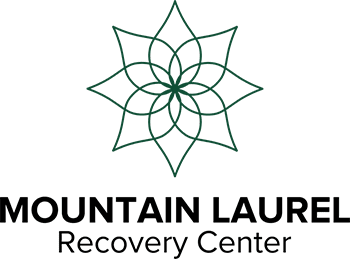
About Xanax Addiction Treatment in Pennsylvania
Xanax is a brand of prescription medicine alprazolam that can be used to treat anxiety disorders, panic disorders, and anxiety that is caused by depression. It’s a fast-acting drug with the majority of the benefits established within an hour after use and the total duration of effect lasting about six hours.
Xanax belongs to the class of drugs known as benzodiazepines. Commonly referred to as benzos, medications in this class increase levels of the neurotransmitter gamma-aminobutyric acid (GABA) in the brain to create a relaxing, sedative effect.
Xanax is not intended to be taken on a long-term basis. It is normally prescribed for less than four months to treat anxiety and less than 10 weeks to treat patients with panic disorders. Because of the risk of addiction, doctors will prescribe the lowest effective dose for the shortest time possible. Due to the potential for misuse, Xanax is classified as a Schedule IV controlled substance under the Controlled Substances Act of 1970.
Slang terms for Xanax include Zannies, handlebars, bars, and blue footballs.
Signs of Xanax Addiction
Since Xanax addiction often begins with a legitimate prescription, it’s important to be alert to the subtle signs that a person is abusing the drug. Like other types of substance use disorders, an addiction to Xanax can lead to relationship problems, declining performance at work or school, and a lack of interest in activities once previously enjoyed. When confronted, people abusing Xanax will typically become angry and defensive—often denying they have a problem and claiming they “need” the drug to function normally.
Additional signs of addiction specific to Xanax abuse include:
- Slurred speech. Since Xanax is a depressant, it can cause slurred speech—much like what you’d see when someone is drunk.
- Daytime drowsiness. People abusing Xanax are often drowsy or sleepy during the day.
- Disorientation, memory problems, or cognitive impairment. Xanax slows down nerve cell activity in the brain, which negatively affects cognitive function. This becomes more noticeable at the higher doses associated with abuse.
- Unpredictable mood swings. People who are addicted to Xanax often behave very erratically. They can be anxious one minute and angry the next. Depressive symptoms are also quite common.
- Stealing. Xanax’s effect on GABA levels in the brain can lead to diminished executive function, which can cause people to impulsively steal while they’re high on the drug. Depending on the individual, stealing can also be a way to fund the purchase of more pills.
Risks of Xanax Addiction
Addiction to Xanax can cause a wide range of problems, including job loss, financial difficulty, relationship problems, sexual dysfunction, accidental injury, and increased mental health struggles. Since addiction is a chronic, progressive illness, the effects will become more pronounced as time passes.
Xanax is unlikely to cause a fatal overdose when taken on its own. However, it is common for people who are addicted to Xanax to mix the drug with alcohol, narcotic painkillers, or other benzos. This presents a real threat of a fatal overdose, as the central nervous system may become overloaded and unable to regulate the person’s breathing and heart rate.
When abused during pregnancy, Xanax can potentially pose risks to the developing fetus including:
- Birth Defects: Some studies have suggested a possible association between benzodiazepine use, including Xanax, and an increased risk of certain birth defects. However, the evidence is not conclusive, and more research is needed to establish a clear link.
- Neonatal Withdrawal: Babies born to mothers who used benzodiazepines during pregnancy may experience withdrawal symptoms after birth. This can include irritability, feeding difficulties, and trouble sleeping.
- Preterm Birth: There is some evidence that benzodiazepine use during pregnancy may be associated with an increased risk of preterm birth.
Getting Treatment for Xanax Addiction in Pennsylvania
Someone who is addicted to Xanax will not be able to quit on their own. Substance use disorders are biologically based illnesses with complex environmental triggers. They’re not caused by a lack of willpower, so recovery is more complicated than simply deciding to quit.
Withdrawal from benzodiazepines, including Xanax, can be challenging and even dangerous. A medically supervised detoxification is often necessary to manage withdrawal symptoms and ensure the individual’s safety.
Medical Assessment: Before beginning detox, a healthcare professional will assess the individual’s overall health, the severity of the Xanax use, and any underlying medical conditions. This assessment helps determine the appropriate detox plan.
Tapering Schedule: A gradual tapering schedule is often the safest approach to detox from Xanax. This involves reducing the dosage of the drug over time to allow the body to adjust gradually. The tapering schedule is individualized based on factors such as the duration and amount of Xanax use.
Symptom Management: Withdrawal symptoms from Xanax can include anxiety, insomnia, irritability, and, in severe cases, seizures. Medications may be prescribed to manage these symptoms and ensure a safer detox process. In some instances, other medications may be used for a short period to assist in the transition.
Help is available at Mountain Laurel Recovery Center
At Mountain Laurel Recovery Center‘s Pennsylvania drug and alcohol addiction treatment facility, we develop treatment plans personalized to fit each client’s unique needs—including plans to address co-occurring mental health issues related to anxiety. Our goal is to help our clients build a life free from dependence on drugs and alcohol as well as the destructive behaviors associated with addiction.
